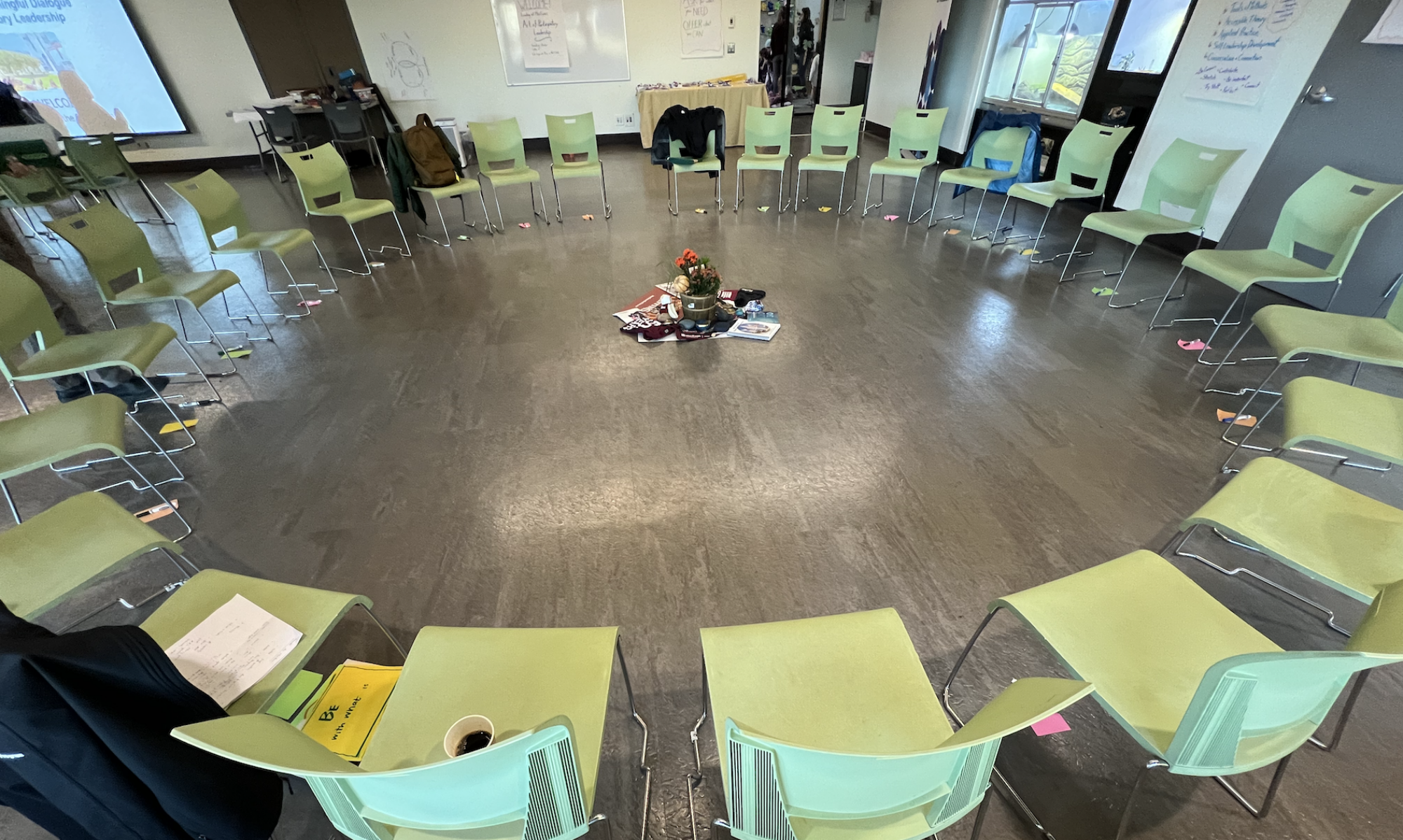Simply too good to pass up. From Susan Szpakowski of the Shambhala Institute:
“The high-fliers see the patterns, draw the maps, distill the principles. If left on their own they can become too abstract, out of touch, irrelevant. The poets sense the field, sing songs of love and longing and truth. If left on their own, they can become sentimental, self-absorbed, fuzzy, irrelevant. The tillers get the work done, move the boulders and clear the field. If left on their own their actions lead to nowhere, leave no tracks of learning, and sacrifice heart to outcomes.”
This comes from an email discusion about the use of language, it’s accessibility, and the need for action. It is occuring on the art of hosting listserve. It started with a post that questioned at some level whether these great ideas, these practices of learning in groups, work with lay people doing real work.
My feelings now are very much influenced by my recent experience. I’m just returning from a Union Development Staff Meeting for CUPE, the largest union for public employees in Canada. It was three and a half days. There were at varied points, anywhere from 30 – 50 of us. One of the reasons I love this group is that they get to work. They invite us to be hosts and offer the pattern of learning that is called “the art of hosting.” They are excited. But they are there to work. Our days with them moved from arrival and open heart, to deepened learning, to rolling up our sleeves, to getting it out of the room and into the world. The third day was spend completely in openspace, concluding with an action planning session. Our purpose was to focus on developing local union leadership — what could this also be? These are people whose entire movement is a call of action to equality, fairness, equity, safety, health, well-being, wholeness, social justice, protection of minority rights, and social change. The outcomes of this particular meeting include simple next steps for a variety of national and provincial programs: rolling out a literacy program, union steward workshops, coaching programs for union executives, developing young leaders, improved use of online collaboration and learning programs, wellness, and core communication materials.
I saw many tillers in this room. And some beautiful high fliers. And some beautiful poets. One of the things that stands out to me from our closing circle were a few comments by the self-defined cynics. They were people who came in suspecting that this work would be too touch-feely. Yet they left with keen appreciation for relationships created AND the work that was created and organized from these friendships. They notice the language. Some reject it. And some just find their own that works.
This particular gathering included stewards, member reps, education reps, development leaders, staff, managers. And it included representatives from other unions, from other departments. People with faces. Real jobs. Real aches. Real hungers. I carry with me many images — people, tillers. One in particular. Dennis, a very large french Canadian man with thick hands, a deep husky voice, a great sense of humor, and an ear to ear smile. He’s the kind of guy that you want on your team and at your back. He is not the kind of guy that I sense relates to the language of the Art of Hosting. And it didn’t really matter. Or, perhaps I should say — in this format, it inevitably didn’t matter. If it were only a 2 hours meeting, this would be different, and designed differently. In the end, he was a bell ringer, and deeply appreciative of the days spent together. A tiller that also got a chance to have his poetness and high flyerness show up. A learning for me is that the language may be different — fine. Sometimes to a detriment and sometimes as a disturbance that gets attention. Whatever words we use to describe what happens – field, open heartedness, open space, holding space, and all the others that I use — it helps put people to work. Tillers, high fliers, and poets.



